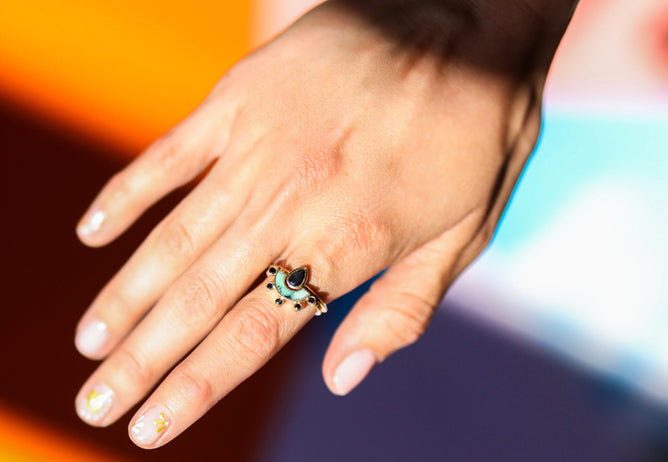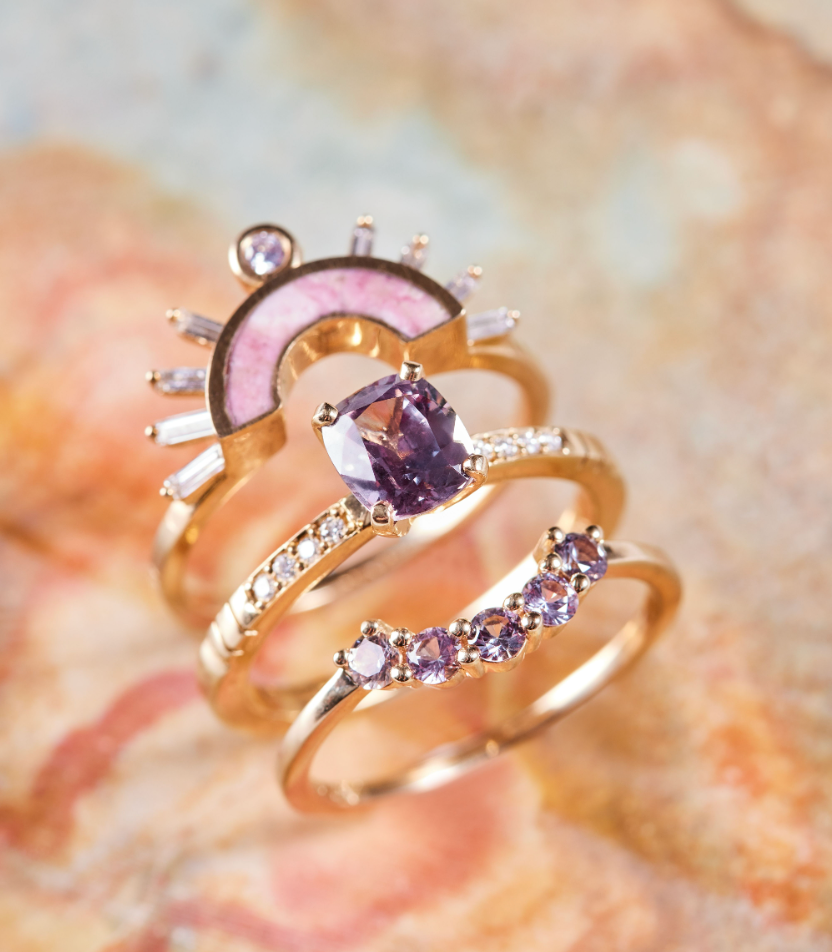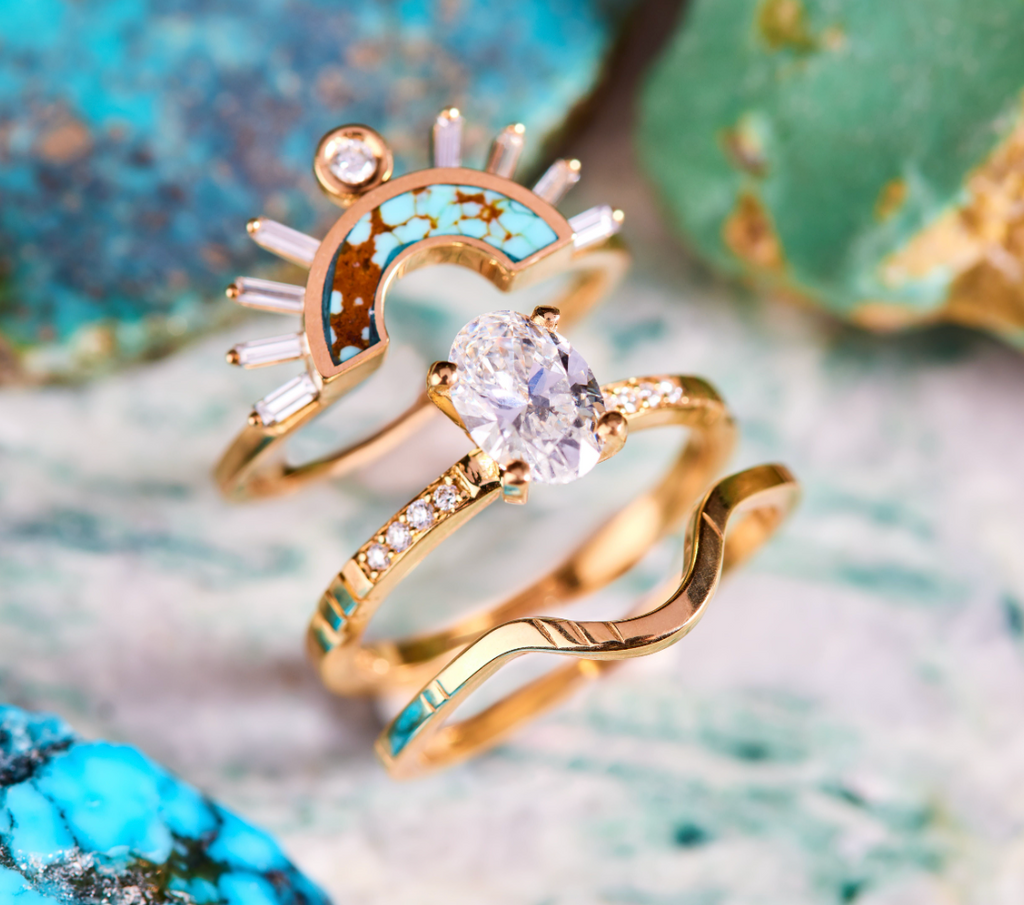Exploring the Risks and Benefits of Using Recycled Gold in Jewelry

One of the main questions about recycling gold is: "Is recycled gold related to money laundering?"
And although there is a dark side to this golden industry, it's not as clear-cut as many think.
This is why we're investigating recycled gold and its relationship with money laundering.
What is recycled gold, and how is it recycled?
Basically, recycled gold is gold previously used in jewelry or other products that are recovered and refined to be used again.
Recycled gold is produced through a series of steps: collection, sorting, melting, refining, and casting. The exact process may differ based on the quality and type of gold source and the desired purity and form of the final output.
What is recycled gold used for?
Recycled gold can be used for the same things as newly mined gold, like making jewelry, electronics, dentistry, medicine, and more.
It can also be mixed with newly mined gold or other metals to create different alloys and colors.
Recycled gold is especially popular in the jewelry industry, offering a more sustainable and ethical alternative to newly mined gold. Mined gold is often associated with environmental damage, human rights violations, conflict financing, and corruption.
Facts about recycled gold
- In 2021, recycled gold accounted for about 35% of the global supply of gold.
- Recycled gold has the same quality and value as newly mined gold.
- Recycled gold can be refined to different purity levels, from 9 to 24 karats.
- Recycled gold can be certified by third-party organizations that verify its origin and traceability.
- Recycled gold can be stamped with a hallmark that indicates its purity and origin.
Benefits and Risks of Using Recycled Gold in Jewelry
There are plenty of benefits for consumers and producers in using recycled gold. These can include:
- It lessens the environmental impact of mining new gold, such as greenhouse gas emissions, water pollution, deforestation, soil erosion, biodiversity loss, and human health risks.
- It supports the circular economy by reusing existing resources and minimizing waste.
- It promotes social responsibility by avoiding the exploitation of workers and communities involved in illegal or unethical mining practices.
- It increases the value and uniqueness of jewelry by giving it a story and a history.
Unfortunately, there is also a dark side to recycling gold, such as:
- Verifying recycled gold's true origin and history may be difficult without proper documentation and certification.
- It may be tainted with harmful substances or metals that could affect its quality or safety.
- It may be used for money laundering.
What is Money Laundering?
Money laundering is when people hide where their money came from, especially if they have done so via criminal activities. They do this in three steps:
- Placement is when criminals bring illegal funds into the financial system by depositing cash in banks or buying assets like jewels or property.
- Layering is when criminals move their funds around through multiple transactions or accounts to mask their source and trail.
- Integration is when criminals use their now legal funds.
Money laundering helps criminals evade taxes, avoid prosecution, increase profits, fund further crimes, or finance terrorism.
Types of money laundering
Although there are many types of money laundering schemes in practice, some of the most common practices are:
- Trade-based money laundering uses trade transactions to mask the movement of money or assets by manipulating invoices, prices, quantities, or quality of goods.
- Cash-based money laundering uses cash transactions to avoid detection by financial institutions or authorities.
- Shell company money laundering uses companies with no real business activity or assets to hide the ownership or source of funds or assets.
- Professional money laundering relies on lawyers, accountants, brokers, or other professionals to enable money laundering activities by offering advice, services, or access to financial institutions or markets.
How Is Recycled Gold Related to Money Laundering?
Gold is a favored vehicle for money laundering because it has many features that make it attractive to criminals, such as:
- It has a stable and high value that can store large amounts of wealth in a small volume and weight.
- It is easily convertible into cash or other currencies and can be traded anonymously across borders and jurisdictions.
- It is difficult to trace and verify its origin, history, and ownership due to the lack of standardized documentation and certification.
- It can be mixed with other metals or materials to alter its purity, appearance, or weight.
- It can be used as payment for illegal goods or services.
What is Gold Laundering?
Gold laundering differs from money laundering as it is when illegally obtained gold is melted and recast into another form.
The recasting is performed to hide its true origin. The recast gold is then sold, laundering it into cash.
There are plenty of players involved in gold laundering, including:
- Illegal miners either mine gold from unauthorized or protected areas or illegally enter an established mine.
- Smugglers transport gold across borders without declaring it or paying taxes or duties.
- Refiners melt and process gold from different sources and issue certificates that do not reflect the true origin or purity of the gold.
- Gold dealers often use cash transactions or shell companies to avoid detection or reporting.
- Consumers buy gold products like jewelry or bars without verifying their origin or authenticity.
Why Can You Trust Young In The Mountains?
As an ethical jeweler, Young In The Mountains believes that recycled gold is a beautiful and valuable metal and a symbol of our commitment to sustainability and ethics.
This is why we try to use recycled metals as much as possible.
We also follow the best practices and standards for anti-money laundering and anti-terrorist financing. In doing this, we only support reputable and certified suppliers to ensure we avoid illegal or unethical practices. All of our gold vendors have AML ( anti-money laundering) systems in place.
Contact us today for unique and ethical jewels.



